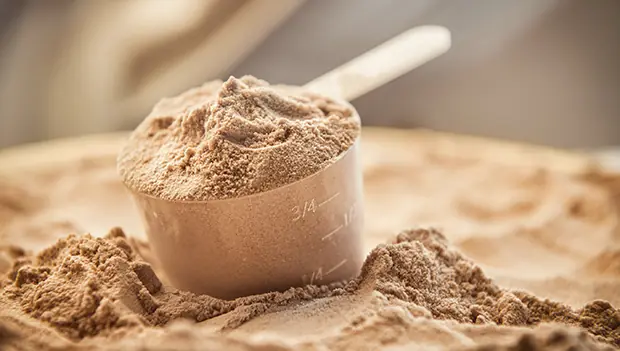
After pressing, curling, sprinting, and crunching, the next logical step for many is shaking (and no, we don't mean with a Shake Weight). Protein shakes, bars, and gels are marketed to be as essential as anything for an effective workout. But are these packaged and powdered foods really necessary for an effective recovery, or do the whole-food alternatives have them beat?
More from Greatist: 17 Scientifically Proven Ways to Speed Recovery
Nutrition Events Near You
The Power of Protein
Downing protein after a workout is often just part of the routine, and for good reason. Consuming protein has been shown to speed up recovery time and increase strength before the next gym session.The magic results from amino acids (tiny parts of proteins), which act as a building block for muscle. After pumping iron, eating (or drinking) foods high in protein supplies the body with amino acids to start repairing the damaged tissue (mainly muscles). Protein shakes offer one method of getting in some muscle-building nutrients after a workout. But are they really more effective than high-protein foods such as chicken or egg?
Pitting powder against whole food, research indicates that the supplements may have a slight advantage. The quick source of amino acids increased the fractional synthesis rate of muscle (a fancy term for rate of muscle building) more than just a regular meal. In addition to adding size, it proves to be effective at increasing workout performance.
One study using whey protein found that supplementation did increase hypertrophy (read: muscle size) and strength in participants. A similar study showed that individuals chugging protein could jump higher following a training program than their shake-less counterparts.
More from Greatist: Whey Protein: A Powder-ful Muscle Booster



